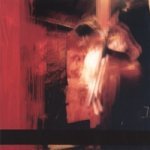
Nat Baldwin Lights Out
(Broken Sparrow)
The eschewing of conventional accompaniment has become de rigueur of late. First there's that Newsom waif bringing the harp centre stage, and now there is Nat Baldwin sloughing off the unnecessary bits of the band, leaving himself with just a double bass. The result is the surprisingly listenable Lights Out.
Originally recorded in 2005, the album has been dusted off due to the obligatory appearance of one of his folk tinged ditties in a mobile phone advert. What the mobile phone industry has done for the avant-folk revival cannot be overestimated.
Baldwin's songs are sparse arrangements, but his mellifluous layered Thom Yorke style vocals enrich them all, as he adopts the chanting choral arrangements promulgated by Zack Condon's Beirut. Without drawing at all on additional instrumental ornamentation the scratchy, deep, dark, and violent tones of the double bass lend this collection of eight tracks a funereal feel.
From the outset, the tone of the album is unsettling; Wake Up It's Time To Leave, is a choral alarm and Goodbye a driving and circular number that may change the way you think about double basses forever, as he makes the instrument spit along with his protracted, diffident farewell.
Perhaps something to do with the double bass, the brief album is not exactly sprinkled with upbeat love songs. Loss, obligation, and resentment course through the album; Alone fizzes with bile, and These Days Are Best is a sardonic dirge meeting a triumphant celebration of a new love.
But, if this all sounds a bit depressing, at barely 25 minutes, the album comes to a timely close with the phone ad soundtrack Only In My Dreams, a surprisingly upbeat, wistful, and sweet half-complete, perhaps dreamt, serenade.
There are many instant comparisons that a lazy reviewer could draw for Nat Baldwin - Jeff Buckley, Beirut, Cat Power - but that's quite some list. And while the feel of the album may not be one of musical revolution, Baldwin's achievement is in showing off the versatility of the hulking great instrument, at the back of the string section and is unique in that respect. Lights Out is a sinister, wintry, instantly familiar, curiosity of an album and no mistake.
17 March, 2007 - 09:47 — Peter Hayward